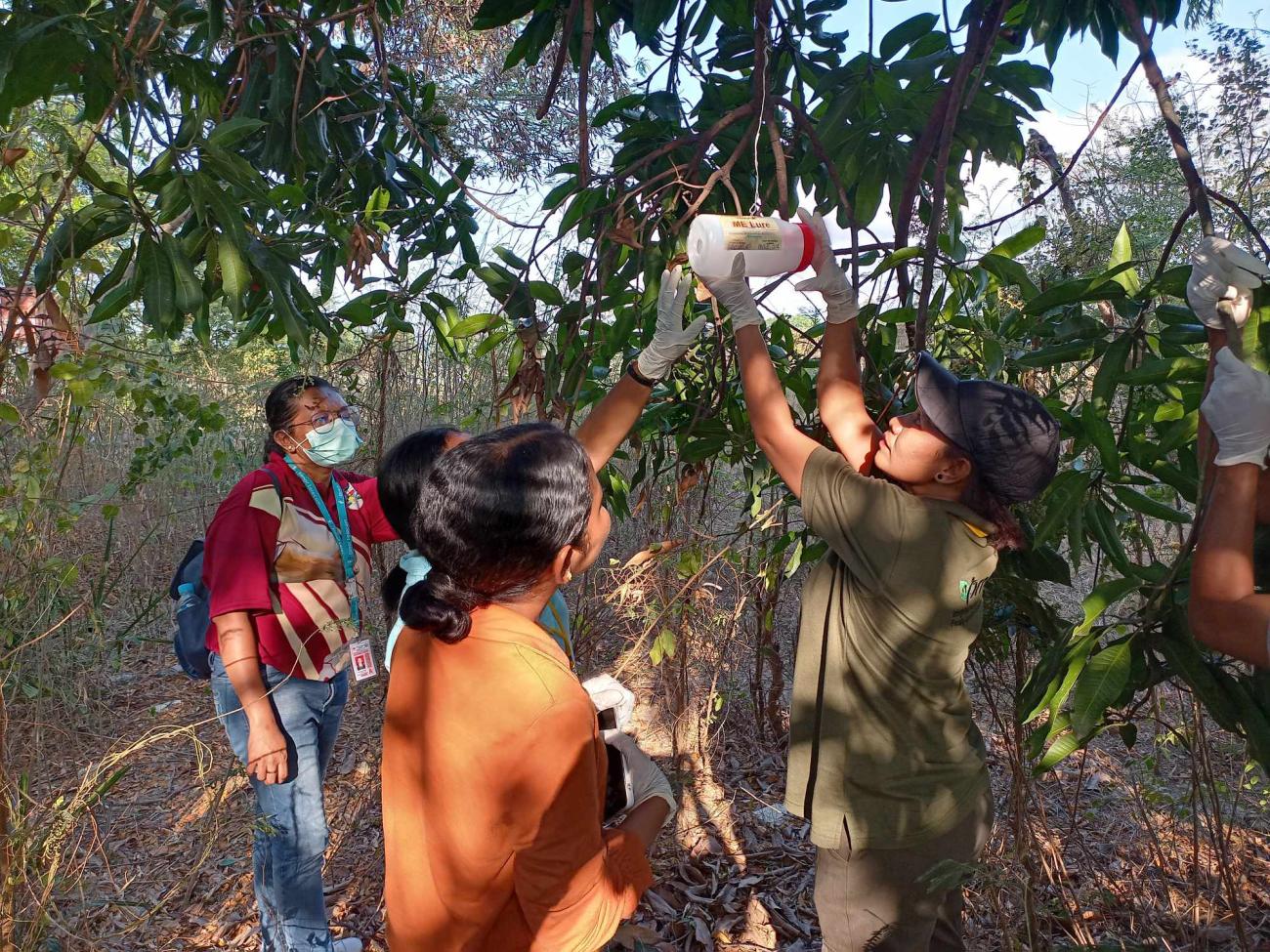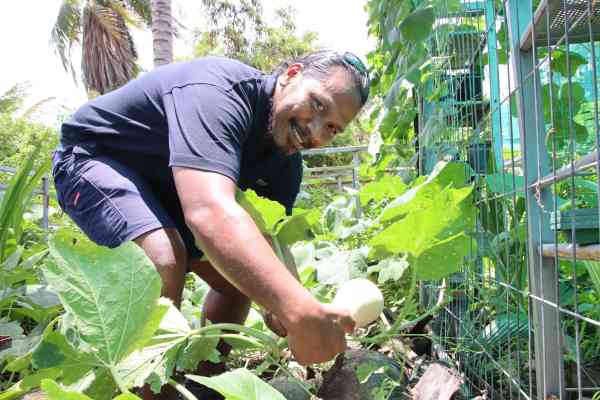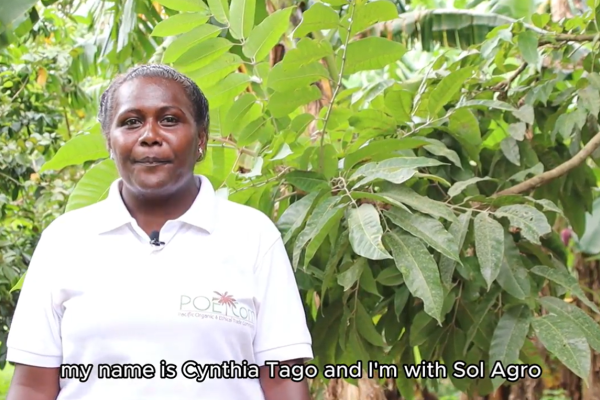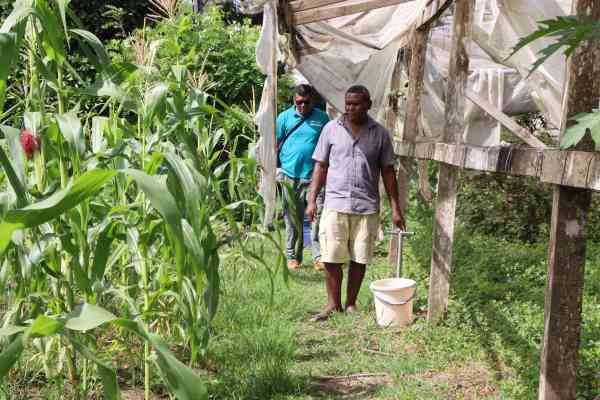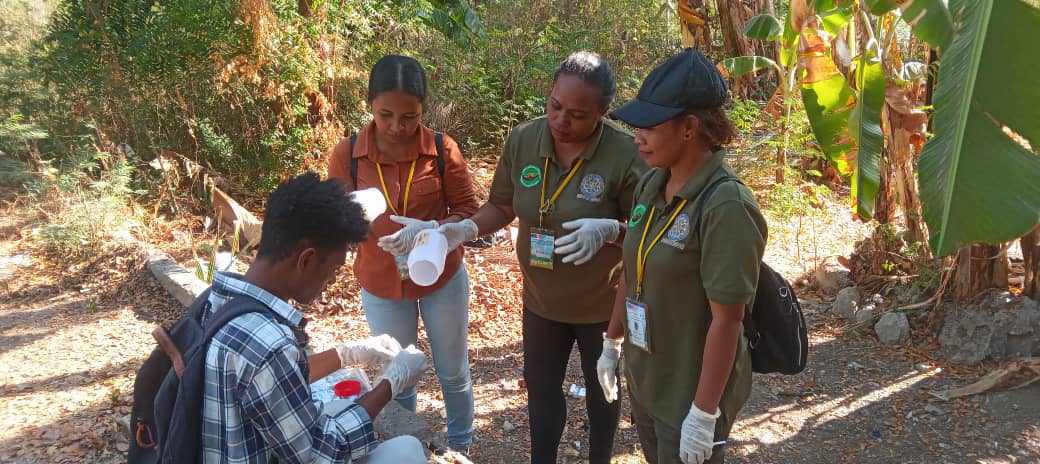
In a significant step towards strengthening national biosecurity, 17 officers from the Timor-Leste Directorate of National Plant Quarantine and Biosecurity (DNQB) and the Department of Plant Protection (DPP) underwent biosecurity risk mitigation, emerging pest risks, plant pest surveillance and related topics during the training sessions held from 18 to 21 September 2023.
This capacity-building initiative, which included interactive workshops and hands-on field exercises, was made possible through funding provided by the European Union as part of the Safe Agricultural Trade Facilitation through Economic Integration in the Pacific (SAFE Pacific) project. This event is one of the first national trainings in several years since the COVID-19 pandemic.
The training was delivered by the Biosecurity, Sanitary, and Phytosanitary Standards (BSPS) Team from the Pacific Community's (SPC) Land Resources Division (LRD).
Mr. Americo Alves Brito, Director of the Department of Plant Protection (DPP), praised the timing and relevance of this training to the department's work. He expressed his satisfaction with the interactive and engaging nature of the capacity-building programme, highlighting its hands-on approach. Mr. Brito pointed out the significance of SPC's involvement through the SAFE Pacific project in supporting Timor Leste's biosecurity efforts.
He said the training included important materials such as the correct methods for sample collection and the approach to accurate pest identification which is a challenge in Timor-Leste due to the need for more necessary infrastructure, such as laboratories. The training focused on priority plant pest surveillance, particularly targeting fruit flies and fall armyworms. The sessions also included a visit to the newly built Tibar Bay Port and shipping container clearance procedures to observe and learn about preventing contamination and entry of pests from other countries.
SPC Biosecurity Officer Riten Gosai explained that the training focused on practical applications and how Timor Leste’s DNQB and DPP can work together to establish continuous priority pest surveillance, an essential role of the national plant protection organisation and data from which is critical for market access negotiation and facilitation of safe trade.
“We rely on biosecurity officers to safeguard our borders and protect our agriculture and environment against potential threats. This training helps increase their capacity to carry out their work and be sure that they are benchmarking themselves to international standards,” said Mr Gosai.
He said empowering and strengthening biosecurity officers and acknowledging their pivotal role in keeping the country and the region safe from pests and diseases was important.
The training sessions were attended by a diverse group of officers, with seven female and ten male participants. In addition to the core focus on fruit fly and fall armyworm surveillance, the program covered a range of other crucial topics, including Pre-border, Border, and Post-border Biosecurity Risk Mitigation, Emerging Pest Threats, Preventing Pest Spread through Sea Container Cleanliness, Notifiable Pest/Disease List Drafting, and Best Practices in Sample Collection and Submission.
Similar training has been conducted in Samoa, Solomon Islands and Tuvalu, and upcoming workshops are scheduled for Vanuatu, Tonga and Micronesian countries.
